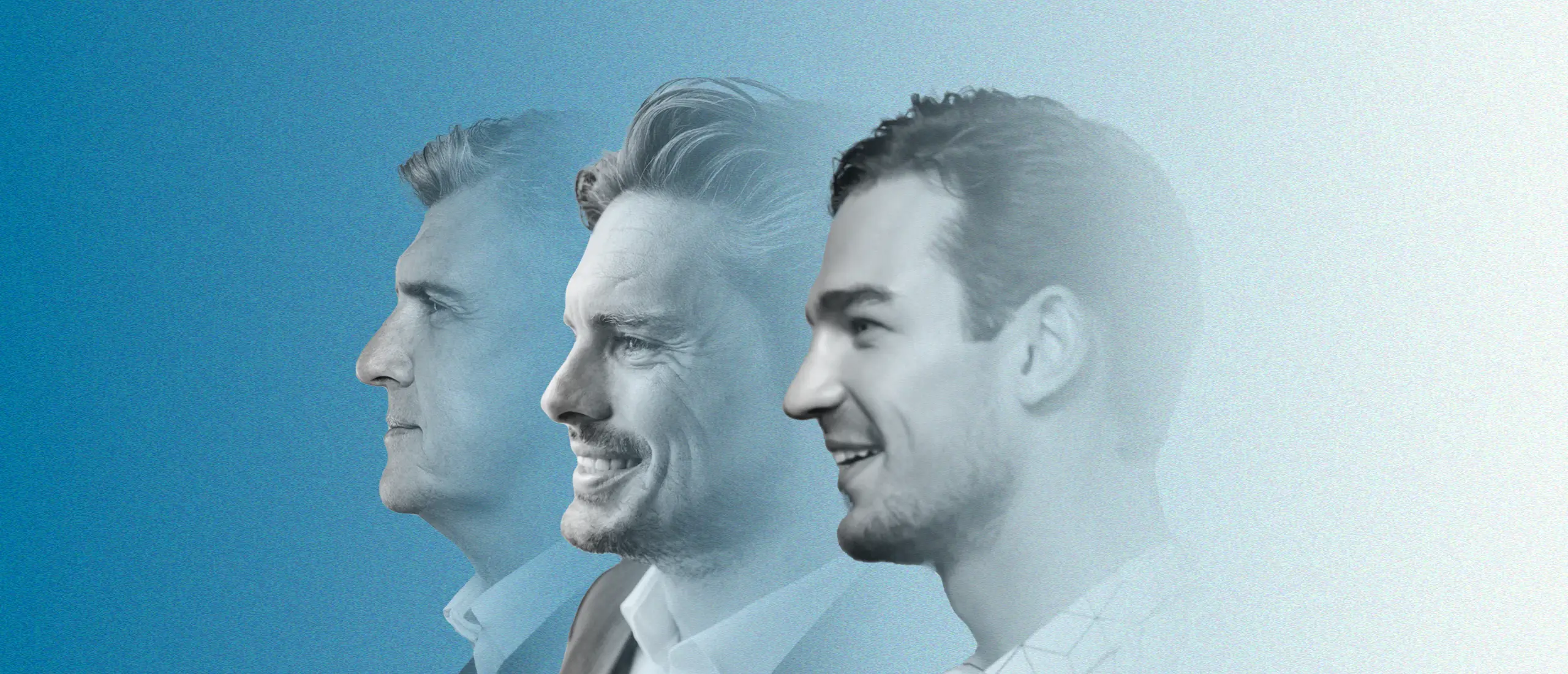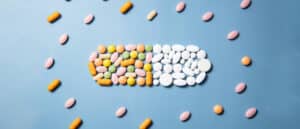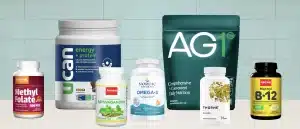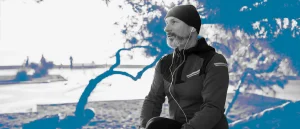Yes, Aging Backwards Is Possible. Here’s How to Do It.
Silicon Valley tech bro Bryan Johnson claims he’s shaved five years off his biological age. Longevity mastermind David Sinclair, Ph.D., says tests show his biological age is a full decade younger than the 53 candles on his birthday cake. Sixty-three-year-old functional medicine doctor Mark Hyman, M.D., say tests clock his biological age at a young 43. But can aging really be cured? Maybe not—but adopting or eschewing certain lifestyle habits could add years to your life.
When it comes to understanding how to reverse aging, there are tests on the market that claim to be able to help you do that. They calculate your ‘biological age’ to see how your body could be aging across various cell-level metrics versus the number of candles on your birthday cake.
But are these tests accurate?
About the Expert:
Dr. Neil Paulvin, D.O., is a longevity expert and regenerative medicine specialist. He specializes in autoimmune and inflammation-based conditions, gut health, and hormone imbalances.
Biological vs. Chronological Age
To be clear, no biohack is going to transform you into a literal 20-year-old again. That’s your chronological age, and all of us age at the same pace: one year at a time.
Your biological age is trickier to determine. It can relate to how your physical body compares to those of the same chronological age. One 45-year-old may be riddled with morning aches and pains while another person born the same year runs marathons on the weekends.
More than that, your biological age reflects the health of your cells and how long they’re able to stave off aging-related diseases, like dementia and cancer.
Sure, genetics play a role. But research has found only about 25% of aging is tied to genetic factors (1). That’s where the concept of biohacking comes in: Making modifications (or “hacks”) to your diet, exercise routine, sleep, and more—can potentially reverse biological aging.
Do Biological-Age Tests Even Work?
It depends. Not all tests are created equally, nor do they all measure the same factors. There are a few different types of tests on the market.
Bio age questionnaires
Some tests involve online questionnaires that rely on honest self-reporting. The Living to 100 Life Expectancy Calculator, for example, factors in your lifestyle habits and medical history to offer actionable tips. On the plus side, it’s a lot more affordable (free) than something that involves a biological sample. The downside: it’s far less accurate.
Bio age blood and saliva tests
Biological age blood or saliva sample tests measure a host of factors, including biomarkers and telomere (DNA sequencing) length. According to Neil Paulvin, D.O., a New York City-based longevity and regenerative medicine physician, “The TruAge PACE test has the most data behind it.”
However, he notes that none of the tests are necessarily 100% accurate. Instead, the test “helps give a more complete picture of biological age and factors that contribute to it,” Paulvin says.
Some biological age tests also look at different inflammatory markers and lifestyle choices causing inflammation, adds Candice Stewart, DNP, of Stella Capri Wellness in Arizona. Though, she notes: “I never use these tests when determining my patients’ health optimization and longevity protocol.”
Instead, Stewart says, she has created her own comprehensive exam which includes blood tests to evaluate inflammatory markers, glucose levels, thyroid function, hormone levels, and more. She also looks at lifestyle factors, clinical symptoms, emotional wellbeing, and family medical history to give her a fuller picture of her patients’ health.
How to Hack Your Biological Age
Experts have different do’s and don’ts for living a long, healthy life. But they all seem to address what Paulvin calls the Core Four for longevity and optimal health: exercise, sleep, diet, and stress reduction.
However, Paulvin says, you have to address all four to reap the benefits.
“These lifestyle changes are interdependent,” he notes. “For example, increasing workouts with a poor diet, or a healthy diet and exercise with poor sleep will not be effective at reversing biological age.”
Researchers were able to reduce biological age by 3.23 years in a small group of men ages 50 to 72 through lifestyle interventions that addressed the Core Four, with a diet heavy on plants and light on animal products (plus, some supplementation) (2).
Core #1: Exercise
Moving your body is non-negotiable. And even a little bit has the potential to undo cellular aging.
“Without a doubt, exercise stands as the unequivocal, single most effective key to unlocking a longer, healthier life,” says Kristin Mallon, CNM, MS, RNC-OB, co-founder and CEO of FemGevity. “The benefits of exercise encompass a comprehensive ecosystem, consisting of various pillars that work together to promote overall well being.”
She adds: “Achieving a higher VO2 max is crucial. Establishing a foundation of fitness through prolonged, low-intensity, steady-state workouts (a heart rate around 70% of your max) is important, and building muscle mass enhances the body’s efficiency and effectiveness during these exercises.”
Regular exercise can reduce mortality by about 30% to 35% and extend your lifespan from about five months to years, by some estimates (3). (“Regular,” by the way, means at least 150 minutes of moderate activity or 75 minutes of vigorous exercise, plus two days of strength training, per week, according to the CDC.)
Vigorous exercise (30 to 40 minutes of running five days a week, or the equivalent) can potentially reduce your bio age by nine years, according to a 2017 study from Brigham Young University (4). The researchers found that people who were more active had longer telomeres—the caps on the ends of chromosomes and a vital metric of cellular aging—than modestly active or sedentary people.
Even a powerful hike can potentially turn the clock back. Regular brisk walking may be able to shave up to 16 years off your biological age, according to a 2022 UK study published in Communications Biology (5). And it’s about telomeres again. Study participants who walked faster had longer ones than their slower counterparts.
Core #2: Sleep
No physician or health expert is ever going to say that skimping on sleep is a good idea.
Sleep is connected to biological aging, and sleep loss has been shown to undermine immune, metabolic, and endocrine function, according to a 2021 review (6).
Sleep plays a key role in mitochondrial repair of DNA. Damaged DNA can lead to telomere shortening, cell senescence (AKA “zombie” cells), and accelerated epigenetic age (6).
Previous research found even one night of sleep deprivation (four hours) activated gene expression that promoted cellular aging through cell senescence (7).
Core #3: Healthy eating
Researchers from the National Institute of Environmental Health Sciences in 2021 found a diet high in whole grains, fruits, and vegetables and low in red meat, added sugar, and saturated fats appeared to slow the effects of aging.
Another study found eating 3.5 ounces of fruit and 3.5 ounces of vegetables (excluding potatoes and legumes) per day lowered biological age by 1.6 and 1.9 years, respectively. The research combined data from both men and women, and when men were considered separately, vegetable consumption lowered their biological age, but fruit consumption didn’t have an impact (8).
Dan Buettner, author of the Blue Zones books, found diet-related denominators among the longest-living people around the globe. Buettner dubbed these longevity hotspots in Japan, Italy, and elsewhere Blue Zones.
Those living the longest (in the Blue Zones) practiced moderation with both food and alcohol, typically drinking only while eating. They also ate more plants and less meat—with beans serving as the cornerstone protein on the plates of centenarians worldwide.
Core #4: Stress reduction
Stress does a body bad—the entire body. According to the American Psychological Association, chronic stress negatively affects every system of the body.
Stress ages us, but recovery from stress can turn back time. A 2023 study published in Cell Metabolism found biological age is fluid and can increase and decrease during and after stressful events, including pregnancy, surgery, or severe COVID-19 infection (9).
Although there’s not a ton of research on cold-plunging as it relates to stress management, longevity gurus Andrew Huberman and Peter Attia are fans. The basic idea is that introducing the physical stress of extreme cold will override other stress and teach the body how to better adapt. Cold acts as a “stress-induced analgesic,” wrote the authors of a 2014 review on hydrotherapy (10).
It’s not totally clear what the mechanism behind stress and cold exposure is just yet, but one small study found dopamine and norepinephrine levels increased when immersed in 14 degrees C water (11).
Another key way to reduce stress is to nurture social relationships. This year, the U.S. Surgeon General released a report with sad-but-true findings: Loneliness and isolation can increase the risk of premature death as much as daily smoking can. Lack of social connection can also raise the risk of stroke, heart disease, and dementia in older adults.
“To reduce stress, you should do something daily that brings you joy, whether that be meditating, yoga, breathwork, working out, or simply spending quality time with friends or family,” Paulvin says.
According to a Harvard study, strong relationships go far in leading a happy (and less stress-filled) life. ”Stress reduction is a key component to living a long, healthy, fulfilled life,” Paulvin says.
References
1. Passarino, G. et al., (2016). Human Longevity: Genetics or Lifestyle?
2. Fitzgerald, K. et al., (2021). Potential reversal of epigenetic age using a diet and lifestyle intervention: a pilot randomized clinical trial
3. Reimers, CD., et al., (2012). Does Physical Activity Increase Life Expectancy? A Review of the Literature
4. Tucker, Larry. (2017) Physical activity and telomere length in U.S. men and women: An NHANES investigation
5. Dempsey, P. et al., (2022). Investigation of a UK biobank cohort reveals causal associations of self-reported walking pace with telomere length
6. Carroll, J., & Prather, A., (2021). Sleep and Biological Aging: A Short Review
7. Carroll, J. et al., (2016). Partial Sleep Deprivation Activates the DNA Damage Response (DDR) and the Senescence-Associated Secretory Phenotype (SASP) in Aged Adult Humans
8. Tucker, Larry. (2021). Fruit and Vegetable Intake and Telomere Length in a Random Sample of 5448 U.S. Adults
9. Poganik, J. et al., (2023). Biological Age Is Increased by Stress and Restored Upon Recovery
10. Mooventhan, A., & Nivethitha, L. (2014)., Scientific Evidence-Based Effects of Hydrotherapy on Various Systems of the Body
11. Sramek, P., et al., (2000). Human physiological responses to immersion into water of different temperatures















